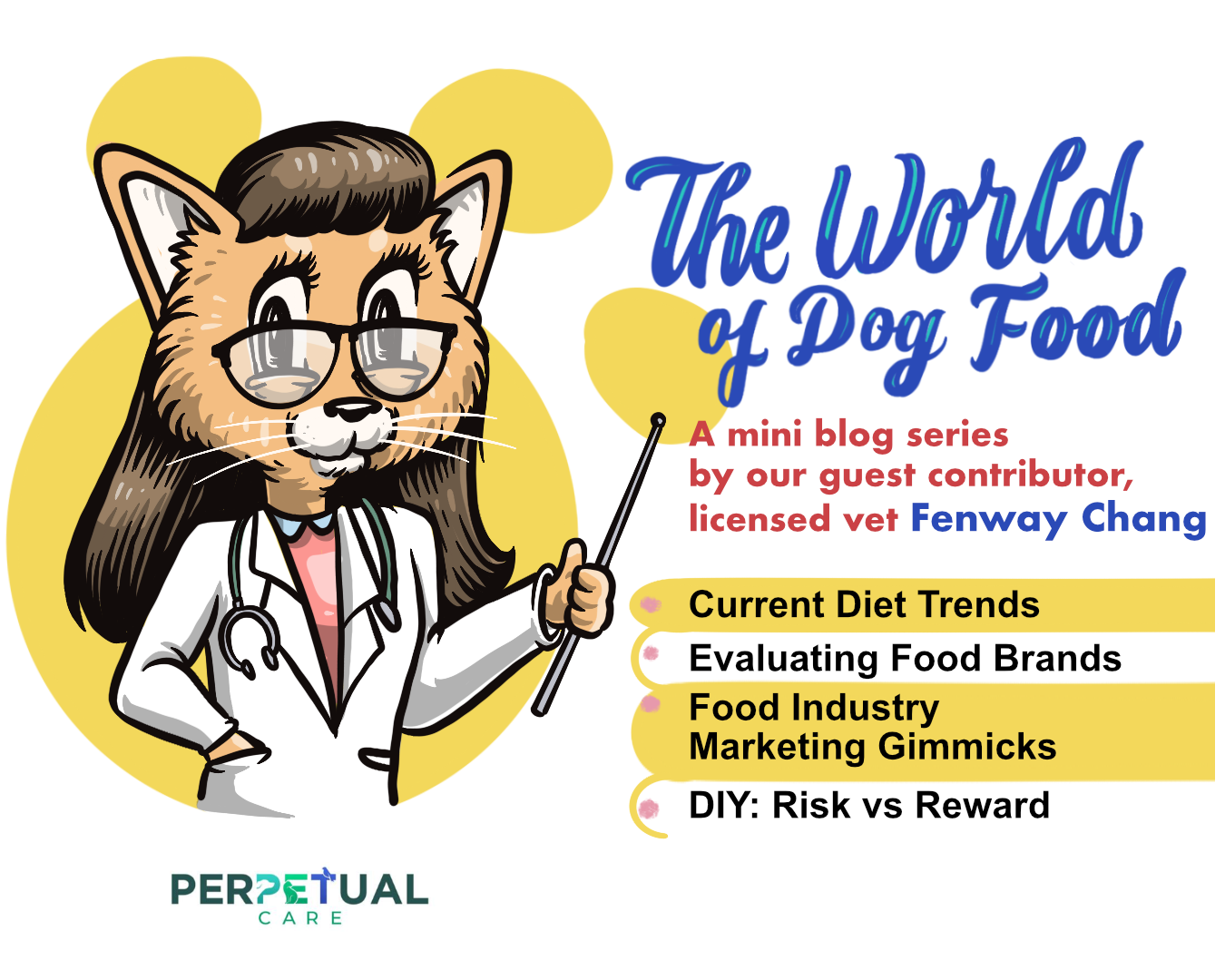Current Diet Trends
Expense or method of preparation of diet doesn’t necessarily determine quality. There are a lot of controversies out there regarding different diets, and even the most informed veterinary nutritionists do not have all the answers - research continues.

There are a lot of controversies out there regarding different diets, and even the most informed veterinary nutritionists do not have all the answers - research continues. With the humanization of pets, alternative diets are becoming more and more popular recently in developed countries. And although there is not yet much scientific evidence to support the benefit claims, many owners and even some veterinarians feel some of these diets may provide more “wholesome” nourishment and certain energies that laboratories may not be able to analyze or quantify. Food therapy is also considered an integral part of Traditional Chinese Veterinary Medicine (TCVM) treatment, which is often tailored to the individual.
Why are there so many different types of foods out there?
Because there's a lot of money involved! The global pet food market size was worth 93.94 billion US dollars in 2020 and is projected to grow from $97.47 billion in 2021 to $136.82 billion by 2028 (source). There are more and more companies recognizing this opportunity and investing in this growing market.
What is the best diet?
The good news is that there is no “best diet”, despite all the marketing claims to the contrary. You are most likely not going to harm your dog by not feeding any one specific diet (with some rare exceptions).
What should I feed for specific health issues?
Each animal is an individual and may have different dietary requirements. Just like with humans, there are general nutritional guidelines (that are constantly being modified with time and more research) but not one magical diet that fixes all our health problems. If your pet is experiencing certain health issues, you should always consult directly with your vet for a tailored plan.
Is alternative better?
Alternative diets cannot definitively be said to be better or worse, however they are not uniformly regulated and there is less historical data to evaluate. In recent years, researchers have seen a possible correlation between a life threatening heart condition called dilated cardiomyopathy (DCM) and Boutique/Exotic/Grain-free (BEG) foods. Veterinary cardiologists discovered that many of the recent dogs diagnosed with DCM were not breeds that typically develop this condition and the only factor in common they could identify is the dogs were being fed BEG foods (source, source, source).
Initially there was a theory that DCM was associated with taurine deficiency, however studies proved this to be only partially true as a good portion of patients have normal blood taurine levels. Depending on the severity, some heart changes were reversible after the patients’ diets were changed. The exact cause of DCM in these patients has not been identified at this time and research into possible causes (nutrition, toxicity, genetics) is ongoing. Even though only a small percentage of dogs on BEG foods go on to develop DCM, the consequences are devastating. As there are no proven benefits and grain allergies in dogs are very rare, veterinarians generally recommend owners think long and hard before choosing this type of diet and if they do, to monitor for signs of heart disease.





